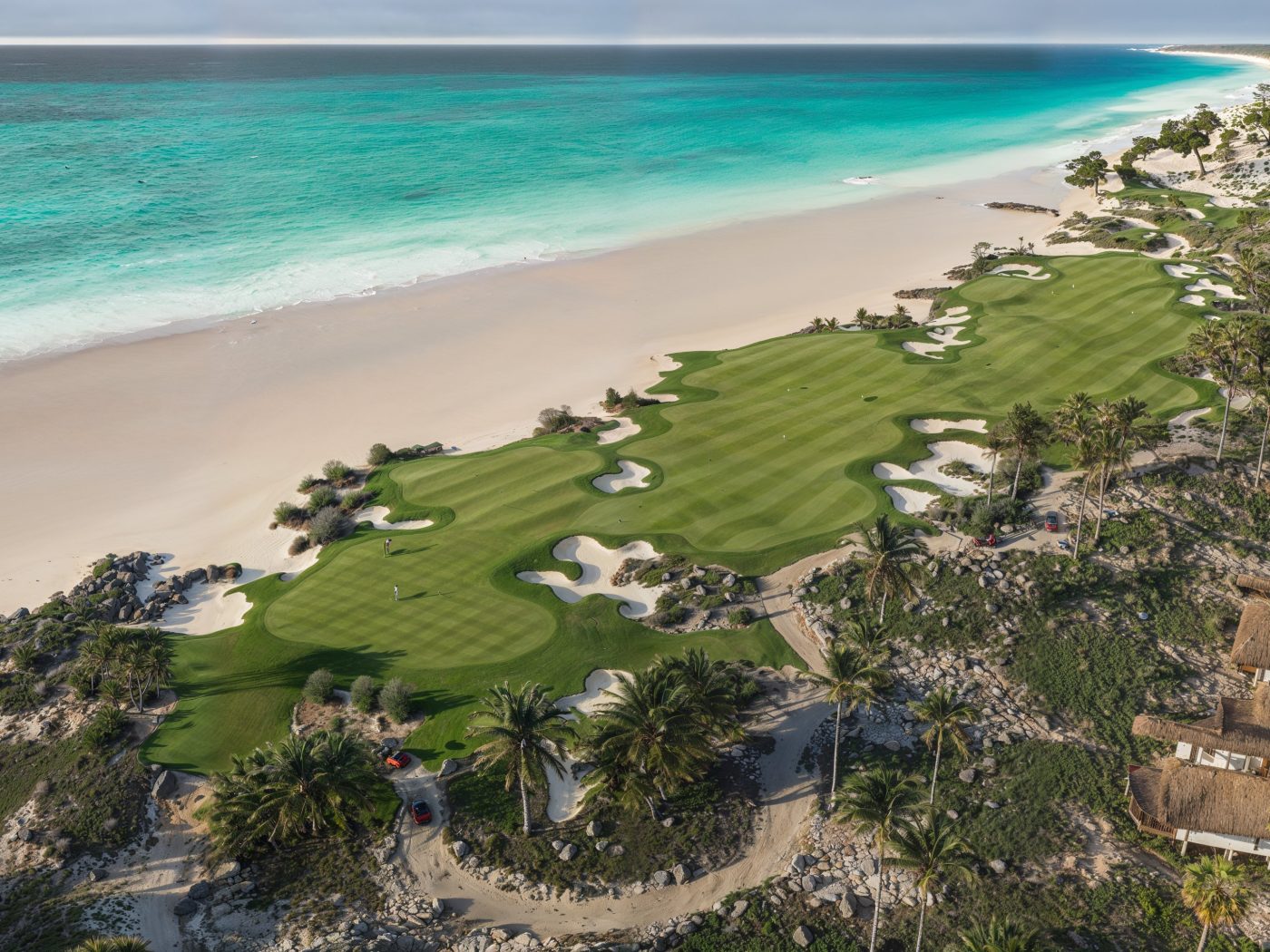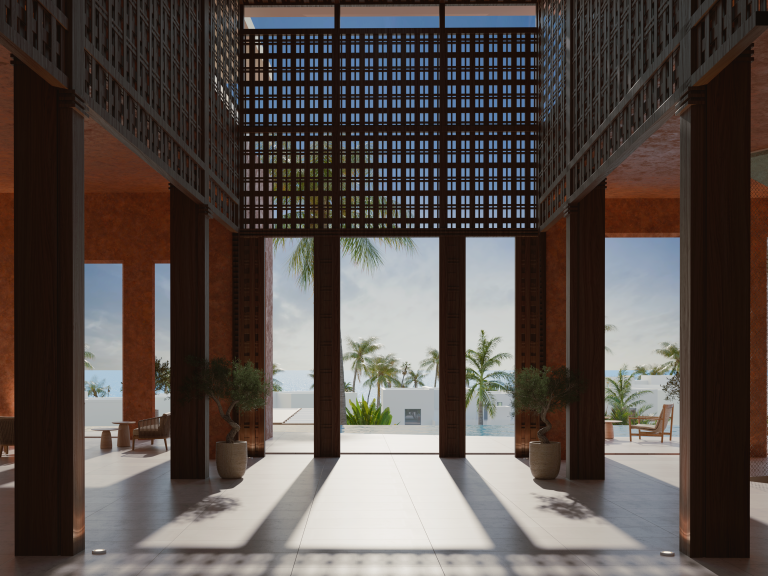
On the sun-baked shores of Cape Verde, where the Atlantic trade winds sculpt the sand dunes and the horizon seems endless, a new kind of golf experience is about to be unveiled. The island of Boa Vista is eagerly awaiting this championship-length, par-72 golf course, the first of four planned 18-hole layouts within a vast new resort, Tarafo Bay, and it promises to redefine what sustainable destination golf can be.
A Course Forged from Sun and Sea
At more than 7,100 yards, the course has all the scale and drama of a championship venue. But while the layout is bold, the real story lies beneath the surface. Every blade of grass will be irrigated using desalinated seawater, using reverse osmosis machinery powered entirely by the resort’s own solar farm. It’s a first for Cape Verde, and a blueprint for how golf can thrive in places where water and energy are precious resources.
Closing the Loop
Instead of relying on chemical fertilisers shipped from thousands of miles away, the course will be nourished by compost created on site. Food and organic waste from the resort’s hotels and restaurants are transformed into a rich soil amendment, a system that not only reduces waste but also builds healthier turf and soils.
Golf You Can Taste
Look closely between tees and fairways, and you might spot mangoes, figs, or herbs growing in the rough. The architects have embraced the concept of edible landscapes, weaving fruit trees and local plants into the course, a sensory reminder that this is a course rooted in its place.
Light Touch, Natural Beauty
Unlike many modern resort developments that bulldoze and rebuild, this course follows the land’s natural contours. Fairways flow over ridges and valleys shaped by dramatic volcanic activity and centuries of wind and rain, with minimal earth moved. Sensitive ecological areas remain untouched, while natural corridors allow native birds and small fauna to thrive alongside the game.
Smarter Golf, Less Water
Behind the scenes, technology ensures the course uses far less water than conventional facilities. Precision irrigation with soil moisture sensors and weather stations delivers water only where needed, and integrated pest management strategies encourage beneficial insects and natural biological controls instead of heavy chemical use.
A World-Class Experience
For golfers, the result is both exhilarating and inviting. From the back tees, the course will demand championship-level shotmaking, with the ocean winds adding an unpredictable twist. From forward tees, wide fairways and forgiving landing zones make the course enjoyable for resort guests and higher handicaps. The visual drama, ocean views, volcanic backdrops, and fairways lined with native flora, elevates every round.
More Than Just Golf
“This is about creating a course that gives back,” says Jon Hunt, lead golf course architect. “Golf should not just consume resources; it should regenerate landscapes, enrich communities, and inspire players. We want Cape Verde to stand as a global model for how golf can thrive sustainably.”
Phase 1 of the resort will debut with the course and practice facilities, while three additional 18-hole courses are planned in later phases. Together, they will create one of the most ambitious multi-course resorts in the world; and certainly one of the most environmentally forward-thinking.
For golfers seeking something different, championship golf powered by the sun, fed by the sea, and rooted in the rugged, rocky landscape of Cape Verde, this is the future.


